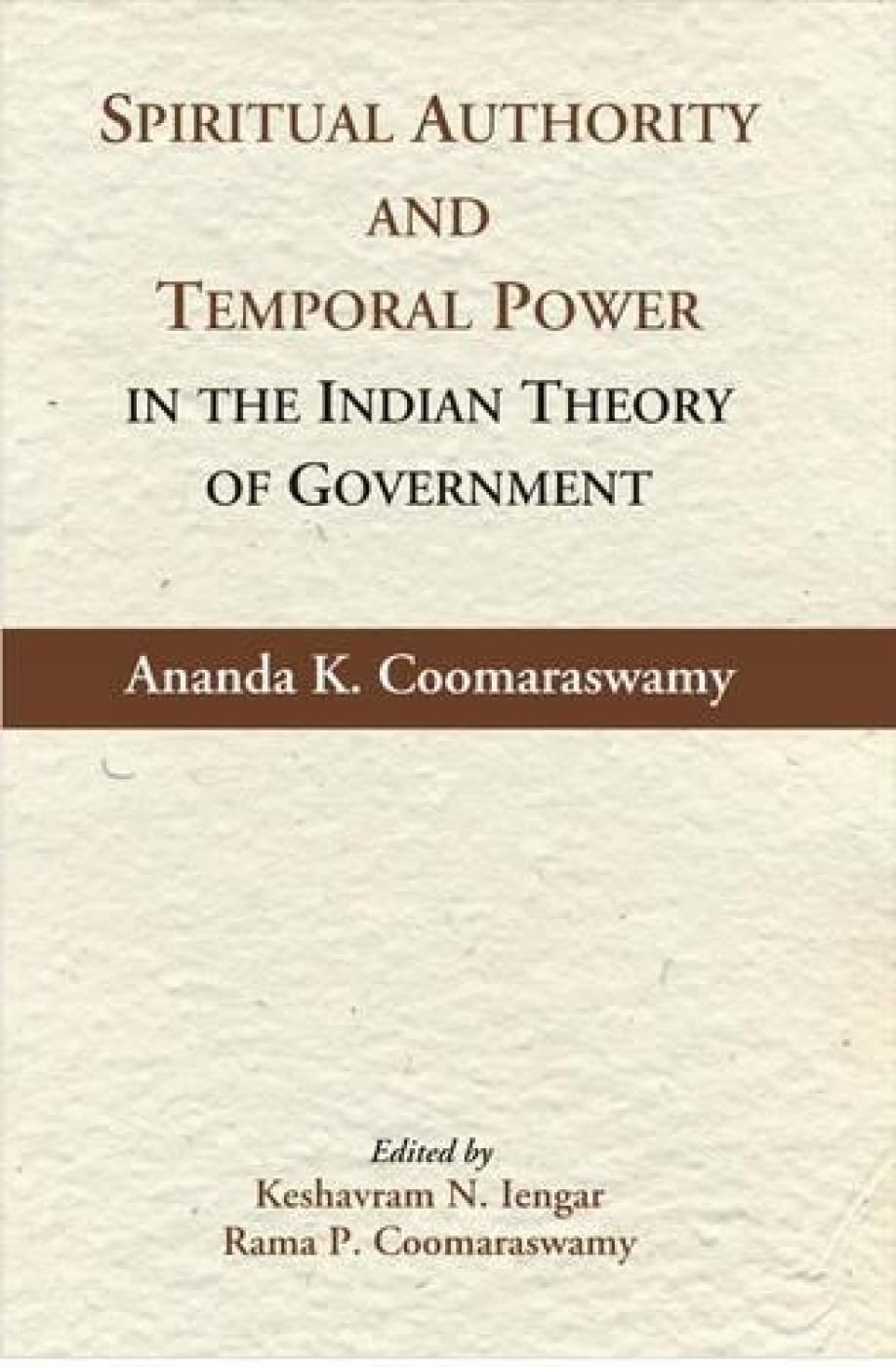Spiritual Authority and Temporal Power in the Indian Theory of Government
Spiritual Authority and Temporal Power in the Indian Theory of Government is backordered and will ship as soon as it is back in stock.
Couldn't load pickup availability
Genuine Products Guarantee
Genuine Products Guarantee
We guarantee 100% genuine products, and if proven otherwise, we will compensate you with 10 times the product's cost.
Delivery and Shipping
Delivery and Shipping
Products are generally ready for dispatch within 1 day and typically reach you in 3 to 5 days.
Book Detail:
- Author: Coomaraswamy, Ananda K.
- Brand: D.K. Printworld Pvt. Ltd.
- Edition: 1
- Binding: Hardcover
- Number of Pages: 147
- Release Date: 01-12-2013
- EAN: 9788124607343
- Package Dimensions: 8.7 x 6.1 x 1.4 inches
- Languages: English
Description:
This revised edition of one of Ananda K. Coomaraswamy's most significant works incorporates his own additions to the first edition of 1942. The book expounds the Indian theory of government, drawing primarily from the Brahmanas and the Rigveda, particularly the Aitareya Brahmana VIII.27 mantra, which addresses the relationship between spiritual and temporal powers. This "marriage formula" is shown to have parallel applications in cosmic, political, familial, and individual spheres, highlighting the union of complementary agencies in each context.
Coomaraswamy discusses how the welfare of the community depends on obedience and loyalty at all levels: from the subjects to the dual control of king and priest, from the king to the priest, and from all to the overarching principle of External Law (dharma) as the "king of kings." The king, though ruling by Divine Right, is not an absolute monarch; his actions are bound by the Law. Self-control, the inner victory of the man, is essential for governing others. This work stresses that only those who have achieved peace with themselves can create peace in any domain—be it as kings, men of action, or artists.
Author Details:
Ananda K. Coomaraswamy was a renowned scholar, philosopher, and historian of Indian art and culture. His profound contributions to understanding Indian philosophy, spirituality, and cultural traditions have made him a key figure in the study of Eastern thought. His work continues to influence scholars and thinkers across disciplines, particularly for his exploration of the connection between the spiritual and temporal worlds.





